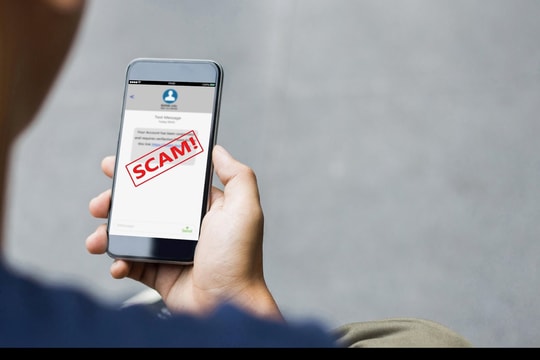Common mistakes that cause tourists to lose all the money in their accounts
A common travel habit, connecting to public Wi-Fi can make you a victim of cybercrime. Experts warn that you can lose both your credit card information and your privacy in just a few seconds of carelessness.
More and more tourists are becoming targets of cybercriminals while enjoying their holidays. According to warnings from security experts at the US security company McAfee, one of the most common but potentially high-risk mistakes is connecting to unsecured public Wi-Fi at places such as airports, hotels, restaurants, gyms or parks.
The problem is, any information you send over public Wi-Fi can be intercepted and read, including credit card information, bank account passwords, text messages, or even personal emails.

“Unencrypted public Wi-Fi networks are a golden opportunity for hackers,” said McAfee. “They can easily intercept your traffic, collect sensitive data, and silently withdraw money from your bank account without you even knowing.”
The US Federal Trade Commission (FTC) and the US Federal Bureau of Investigation (FBI) have also issued similar warnings, advising people to absolutely not access bank accounts or conduct financial transactions while connected to public Wi-Fi.
Not only Wi-Fi networks, social networks are also "loopholes" for criminals to act.
Another common mistake when traveling is posting photos and real-time location updates on social media. This may seem harmless, but it unintentionally reveals information about when you are away from home, which becomes a “cue point” for both traditional thieves and hackers.
“Sharing your travel itinerary publicly can make you a target for cyberattacks or theft,” McAfee experts warn. “It’s best to wait until the end of your trip to post photos and related content.”
Beware of fake emails and messages
When we're on vacation, we're often less vigilant about strange emails or messages, especially when they pretend to be from an airline, hotel, or bank, informing us of a problem with a reservation or payment.
“Do not click on links or download attachments from suspicious emails, especially if they ask for personal or financial information,” McAfee emphasizes.

Instead, verify information by contacting the organization directly through its official website or trusted phone number, never reply directly to emails or text messages sent to you.
Virtual Private Network: A technological shield to protect personal data
The solution recommended by security experts is to use a virtual private network (VPN) when forced to access the Internet over public Wi-Fi. VPNs work by encrypting the entire Internet connection, helping to hide browsing activity from hackers and third parties.
“With a VPN, if a hacker tries to monitor your network traffic, all they get is encrypted, meaningless data,” McAfee said.
VPNs are legal in most countries like the US, Canada, and European countries, but are banned in some heavily censored places like North Korea, Iran, Belarus, and Turkmenistan. However, if you are traveling to popular countries, installing and using a VPN is perfectly feasible and should be considered the minimum action to protect yourself.
Additionally, VPNs can prevent advertisers and apps from tracking your online behavior, helping you maintain privacy throughout your trip.
Simple yet effective tips to stay safe when using public Wi-Fi
- Always check if the website URL starts with “https” and has a lock icon.
- Turn off the automatic Wi-Fi connection feature on mobile devices.
- Do not access bank accounts, e-wallets or sensitive services.
- Use a VPN whenever possible.
- Do not share photos or real-time location information on social networks.
In short, a memorable vacation shouldn’t come with the hassle of losing money or exposing personal information. With public Wi-Fi, social media, and email becoming more prevalent, proactive data protection is more important than ever.
With just a few minutes of preparation such as installing a VPN, adjusting your sharing habits or checking your connection, you can avoid serious losses, making your trip truly safe and complete./.



.jpg)


